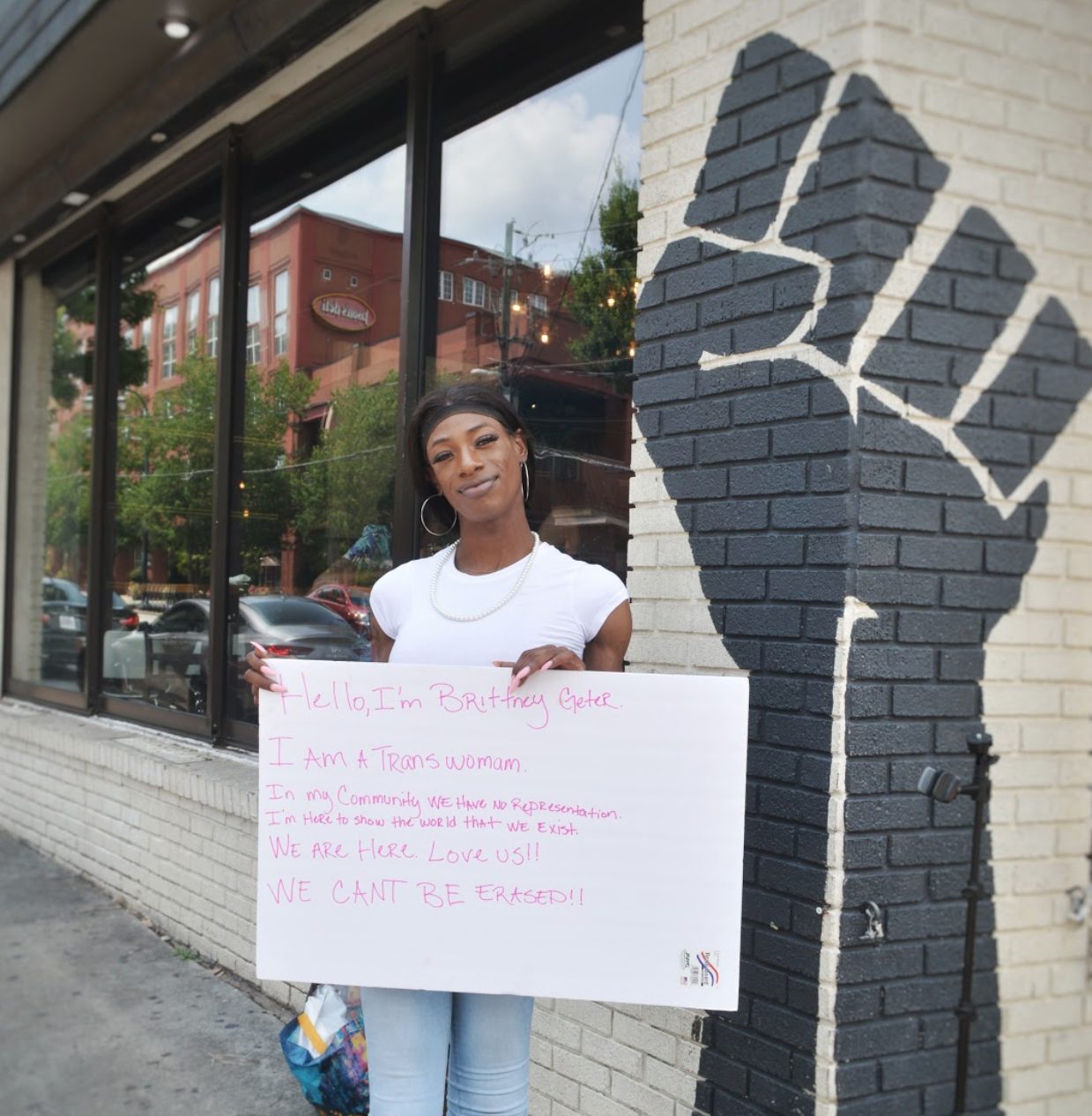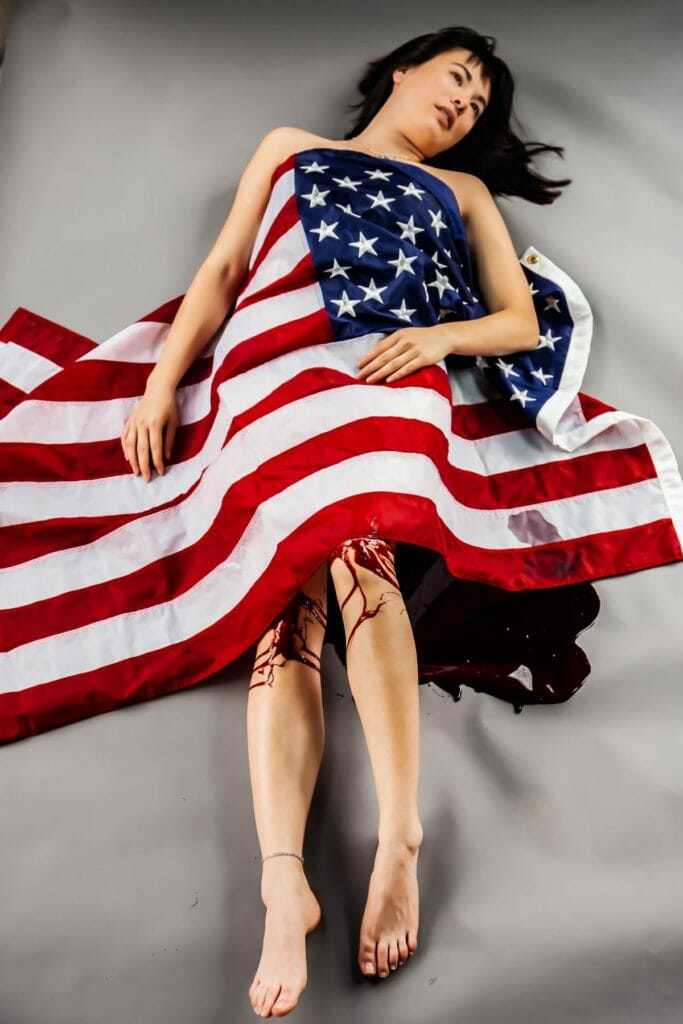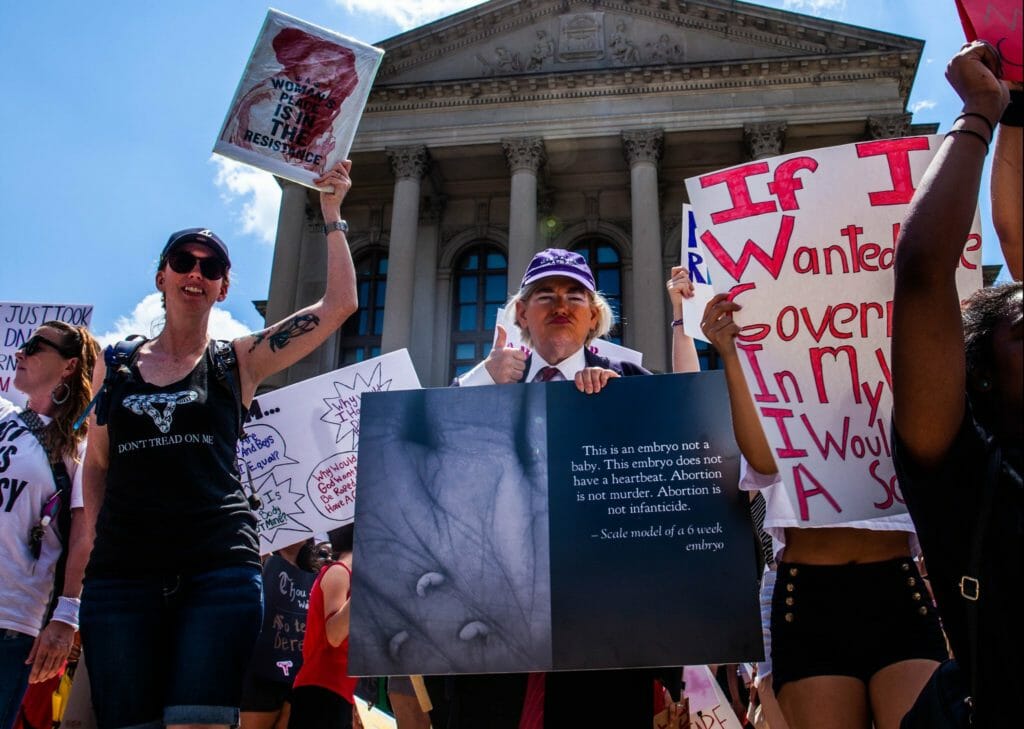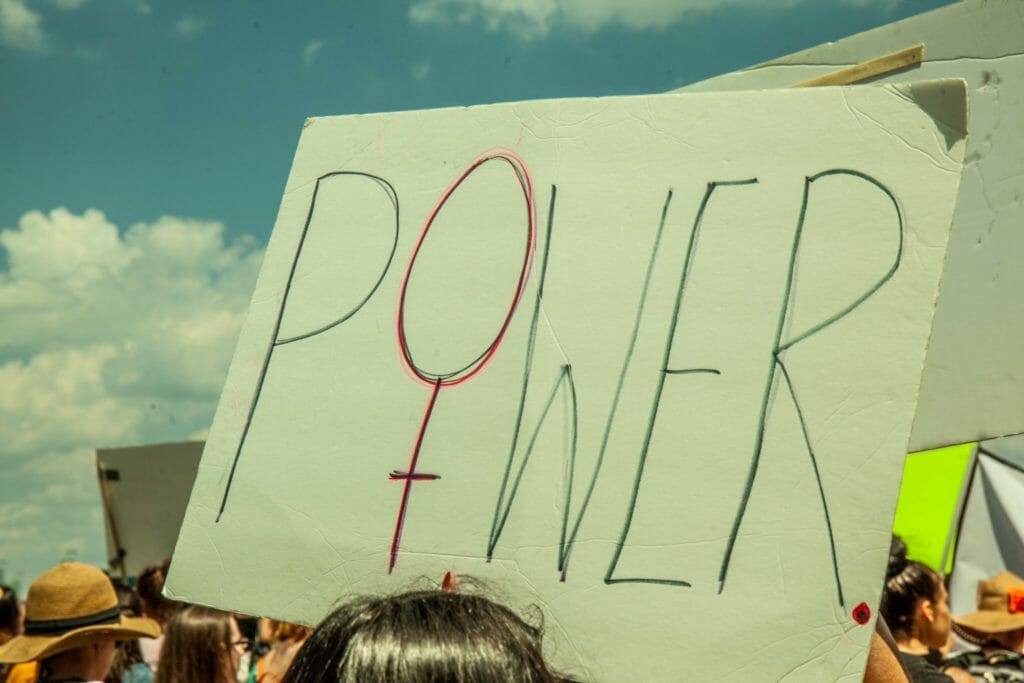After more than a century of status quo candidates, Atlanta’s mayoral race now includes a historic newcomer: Brittney Geter, Atlanta\’s first Black trans woman mayoral candidate in its 173 year history.

ATLANTA — The lives of Black transgender women should be at the focus of building a more just and equitable society. Unfortunately, recent reports that show staggering unemployment rates, poverty, homelessness, and discrimination reveal that Black transgender people are among the most vulnerable people in the United States. Violent attacks and murders of Black and brown transgender and gender non-conforming people have also seen record highs in the last five years. This year looks to be the deadliest on record.
So if we want to get “tough on crime”, cure homelessness, narrow the wage gap, and end discrimination, why isn’t society asking those most affected for ideas and solutions? And why hasn’t Atlanta, with one of the highest LGBTQIA+ populations per capita, ever had a Black transgender woman lead the city?
The problems I\’m facing, I\’m sure there are a plethora of other people facing the same.
Brittney Geter
I posed those questions and more to Brittney Geter, a Black trans woman running to be the 61st mayor of Atlanta. I met with her at the corner of 10th Street and Piedmont Road, where she was protesting recent statements made by rapper DaBaby and making constituents aware of her campaign. She told me she was there to “let the world know that we exist; we have no representation, so I’m here to represent us.” Geter also expressed that since her experience is one of great intersectionality as a Black woman, trans woman, LGBTQ, and low income resident, her campaign will have a strong focus on equality.
Geter says she was the victim of a violent hate crime by one woman and two men in New York this summer. The attack and lack of support from organizations, community members, and police led her to run for mayor of Atlanta. Her younger brother, one of Atlanta’s water boys, also serves as an inspiration for Geter to run for mayor and to start a three-tiered mentorship program for low-income and at-risk youth called BRIDGE.
“I want to bridge the gap,” Geter said.
However, the process to start the mayoral campaign was dealt its first blow in the filing phase. Geter, whose deadname is Jonathan Geter, was told her declaration of intent could only include “government names, not nicknames.” She told me she tried to explain to the municipal clerk that her chosen name, Brittney, was not a nickname. However, her explanations and experience were to no avail. She said, “The problems I’m facing, I’m sure there are a plethora of other people facing the same.”
I first became aware of her campaign because of those particular forms. I use those forms, candidate websites, social media, and other public records in my research for the Mainline Podcast’s weekly new candidate alert segment and local elections reporting. On July 23, I announced to our listeners that new candidate Jonathan Geter had joined the mayor’s race, but that I couldn’t find a website or any background on the candidate. Geter reached out to me a few days later to clarify that she was the candidate and would be running under her chosen name, not the deadname listed on official documents.
Not providing space for chosen names on forms seems problematic and caused me to wonder if it is one of the reasons we haven’t had a transgender candidate for mayor in the past. Or how many other municipalities have missed opportunities to include more diverse candidates because they may be forced to use a name they no longer associate with anymore?
The short history of transgender, gender-nonconforming, or nonbinary people holding office in the U.S. proves that we haven’t made space or accepted these candidates. Geter said she has begun the lengthy name change process and hopes to complete it soon. The process is just one of the many hurdles transgender people face every day. It’s also another way in which society chooses to erase transgender and gender-nonconforming people covertly. State legislators across the country haven’t tried to hide their intentions. According to the website Freedom for All Americans, there are currently 137 anti-transgender bills filed in more than 30 states.
According to a statement recently released by Geter, she was also left out of the Young Democrats of Atlanta mayoral candidate forum. After arriving at the forum, she was told the forum would only be for the top five candidates to participate in. However, Geter noticed six chairs. She was given a seat next to those six candidates but not an opportunity to address the constituents. The Atlanta Journal-Constitution covered the event, but made no mention that Geter was in attendance or left out. Geter has since been working more diligently to amplify her campaign and embolden her message, despite the Democratic group’s failure to accommodate her participation in the latest forum. Geter is registered with the Democratic Party.
While trans folx experience an array of barriers to participation not only in electoral politics, as shown in Geter’s experience in Atlanta, but also in everyday activities like sports, free speech, freedom from discrimination, freedom from harassment, and protections from hate crimes, the solution to how to address these injustices isn’t complicated. When asked what she would like people to understand most right now about the hardships that Black trans women or the trans community in general face, Geter offered an eloquently direct and simple response.
“It’s simple, to be respected and loved,” she told me. “To not be looked at differently, because we are human beings just like everyone else. If people started with compassion, we wouldn’t have hardships.”




